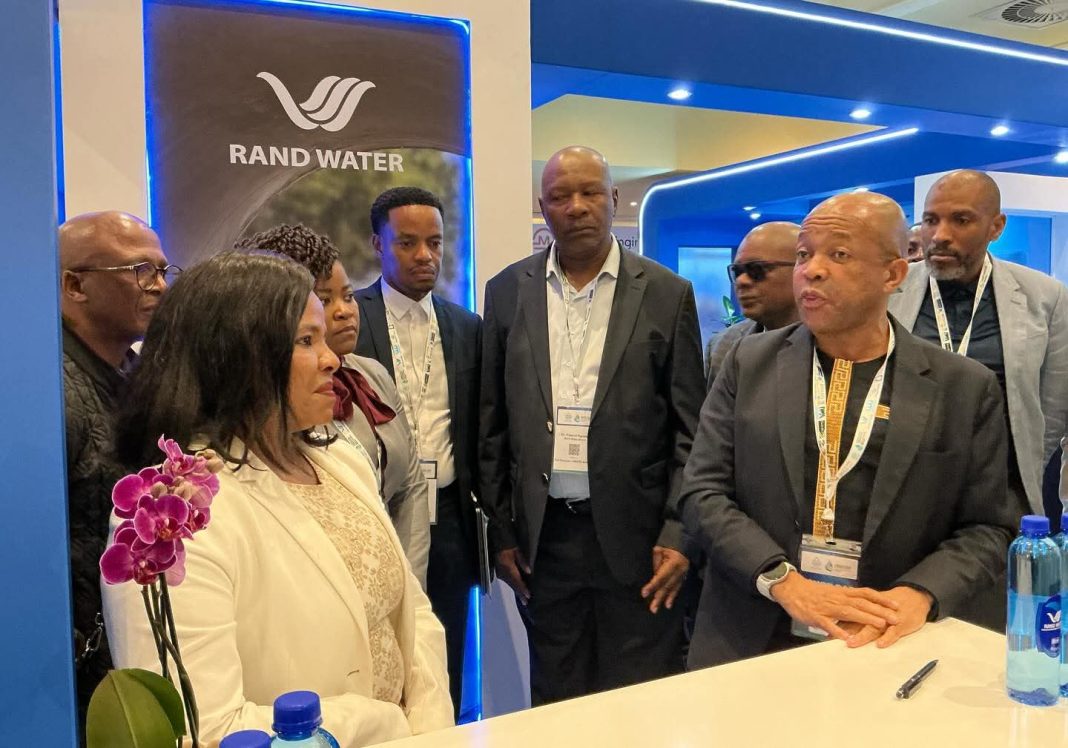By Johnathan Paoli
The three-day Africa and Global South Water and Sanitation Dialogue hosted by the Association of Water and Sanitation Institutes of South Africa (AWSISA) closed this week at Emperors Palace with a clear and urgent message for South Africa’s municipalities: collaboration, innovation, and capacity building are no longer optional but survival strategies for local water utilities.
The dialogue opened with high energy and attendance, drawing over 1,100 delegates from across Africa and the Global South.
Water and Sanitation Minister Pemmy Majodina delivered a pointed reminder of what’s at stake for cities and towns.
“Without water, there is no life, no socio-economic development, and no livelihoods. Our people are waiting for implementation. The time for discussion is over; the time to deliver is now,” she said.
At the technical workshop, Managing Director of Rand Water Services, Maubane Mahlare, unveiled the Rand Water Special Purpose Vehicle (SPV) Model; a pioneering public–public partnership designed to support municipalities in water and sanitation management.
The SPV blends technical support with innovative financing to tackle chronic issues such as leakages, infrastructure maintenance, and financial instability in municipal systems.
The second day shifted focus to infrastructure excellence and inclusive leadership.
Opening the morning plenary, Rand Water Group Chief Executive, Sipho Mosai, showcased the utility’s infrastructure milestones, namely the newly launched System 5 Water Treatment Plant, which adds 600 megalitres of daily capacity, and the 210 megalitre Vlakfontein Reservoir, the largest post-tensioned circular concrete reservoir in the world.
Mosai used these achievements to make a broader appeal to learn from one another, collaborate across borders and co-create African-led solutions.
That collaborative spirit was echoed by Rand Water and AWSISA Chairperson, Ramateu Monyokolo, who emphasised professionalisation and capacity development across all disciplines in the water sector; not just among engineers.
Later, Ekurhuleni MMC for Water and Sanitation, Thembi Msane, speaking on behalf of Mayor Nkosindiphile Xhakaza, warned that water management is a matter of life and dignity.
“If we fail to invest decisively in maintenance and repair, the human cost will be unimaginable,” she said.
The Dialogue’s Women in Water panel stood out as one of the most impactful sessions.
Rand Water’s General Manager for Strategic Human Capital Wayida Mohamed revealed that 55.3% of managerial and technical roles at Rand Water are now held by women; an achievement underpinned by deliberate transformation and mentorship.
“Transformation must be intentional. It’s not just about numbers—it’s about creating an environment where women can thrive,” Mohamed said.
President of the Federation of African Engineering Organisations and Rand Water’s Asset Automation Manager, Refilwe Buthelezi, called for early pipeline development, encouraging municipalities to engage high school learners in STEM and mentorship.
By the third day, attention turned to the future of utilities; a theme driven by Rand Water’s innovation leaders Ranesh Singh, Mamiki Masemola and Mogan Padayachee.
Their sessions explored how digital tools, smart metering, and predictive maintenance are transforming utility management.
In the Capacity Building Stream, experts such as Annelie Swanepoel (Rand Water Analytical Services) and Robyn Vilakazi (Energy and Water SETA Acting CEO) discussed workforce readiness and leadership pipelines for the sector.
Municipal representatives were encouraged to partner with EWSETA to align skills development plans with emerging technologies and operational demands.
The dialogue concluded with a vibrant exhibition and a call for reaffirming the theme of trust, accountability and responsible community engagement.
For municipalities, the takeaways were clear: adopt innovative financing such as the Rand Water SPV to close infrastructure gaps; and invest in human capital through structured capacity-building partnerships.
Additionally, there is a clear need to leverage data and technology for efficient water management, and empower women and youth as catalysts for institutional renewal.
For South Africa’s metros and municipalities, the challenge now is to turn these potential lessons into measurable impact, from dialogue to delivery.
INSIDE METROS

